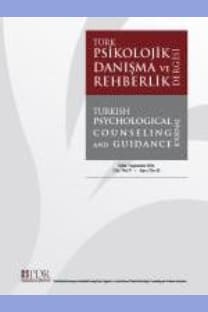Examination of School Counselors' Statewide Listserv Interactions
School counselors are responsible for a myriad of different tasks. The purpose of this study is to provide insights into topics that counselors ask for information or advice on a statewide listserv called CounselorTalk. The database for this study is a two-year, 1,600+ person listserv on the State of Indiana school counselors, counselor educators as well as those interested in counseling who do outreach activities related to school counseling. There's been much ambiguity regarding counselors' role as well as internal debates concerning the appropriate role of school counselors as their daily activities are described. Little has been done to examine what counselors deem important enough to request information about. Data from the listserv was archived by month and placed in a digital file coded by topic, school level and time period. After initial coding categories were collapsed into ten unique groups and discussed.
Anahtar Kelimeler:
School Counselor, Counselor Activities, Email Interaction, Counselor Role, Counseling Services
___
- American School Counselor Association (2011). The role of the school counselor. Retrieved from http://www.schoolcounselor.org/asca/media/asca/home/rolestatement.pdf.
- American School Counselor Association. (2012). ASCA national model: A framework for school counseling programs. American School Counselor Association.
- Baggerly, J., & Osborn, D. (2006). School counselors' career satisfaction and commitment: Correlates and predictors. Professional School Counseling, 9( 3), 197-205.
- Barton, P. E. (2003). Parsing the Achievement Gap: Baselines for Tracking Progress. Policy Information Report.
- Barton, P. E., & Coley, R. J. (2009). Parsing the Achievement Gap IT. Policy Information Report. Educational Testing Service.
- Beale, A. V. (2004). Questioning whether you have a contemporary school counseling program. The Clearinghouse, 73-76.
- Bemak, F. (2000). Transforming the role of the counselor to provide leadership in educational reform through collaboration. Professional School Counseling, 3, 323-331.
- Bemak, F., & Chung, R. C. (2005). Advocacy as a critical role for urban school counselors: Working toward equity and social justice. Professional School Counseling, 8, 196-202.
- Burnham, J. J. & Jackson, C. M. (2000). School counselor roles: Discrepancies between actual practice and existing models. Professional School Counseling, 4, 41-49.
- Butler, K. S., & Constantine, M. G. (2005). Collective self-esteem and burnout in professional school counselors. Professional School Counseling, 9(1), 55-62.
- Carter, R. B. (1993). School counselor role statements: Fact or fiction. Education, 114, 45-53.
- Goodman, S. E. (2015). School Counselors' Perceptions of Their Academic Preparedness and Job Activities. Counselor Education and Supervision, 54( 1), 57-67.
- Griffin, D., & Steen, S. (2010). School-family-community partnerships: Applying Epstein's theory of the six types of involvement to school counselor practice. Professional School Counseling, 13( 4), 218-226.
- Gysbers, N. C., & Henderson, P. (2014). Developing and managing your school guidance and counseling p rogram (4th ed.). John Wiley & Sons.
- Gysbers, N. C., & Henderson, P. (1988). Developing and Managing Your School Guidance Program (Ist ed.). American Association for Counseling and Development, 5999 Stevenson Ave., Alexandria, VA 22304.
- Gysbers, N. C. (2001). School guidance and counseling in the 21st century: Remember the past into the future. Professional School Counseling.5(2), 96-104
- HolcombMcCoy, C. (2005). Ethnic identity development in early adolescence: Implications andrecommendations for middle school counselors. Profession al School Counseling, 9, 120- 127.
- Lee, R. S. (1993). Effects of classroom guidance on student achievement. Elementary School Guidance & Counseling, 27, 163-171.
- Moyer, M. (2011). Effects of Non-Guidance Activities, Supervision, and Student-toCounselor Ratios on School Counselor Burnout. Journal of School Counseling, 9(5), 1-31.
- Myrick, R. D. (1993). Developmental guidance and counseling: A practical approach (2nd ed.). Minneapolis: Educational Media.
- Myrick, R. D. (2003). Accountability: Counselors count. Professional School Counseling. 6 , 174-179.
- Perera-Diltz, D. M., & Mason, K. L. (2008). Ideal to Real: Duties Performed by School Counselors. Journal of School Counseling, 6(26), n26.
- Perusse, R., Goodnough, G. E., Donegan, J., & Jones, C. (2004). Perceptions of school counselors and school principals about the National Standards for School Counseling Programs and the Transforming School Counseling initiative. Professional School Counseling, 7, 152-161.
- Rayle, A. D., & Adams, J. R. (2007). An exploration of 21st century school counselors' daily work activities. Journal of School Counseling, 5(8). Retrieved from http ://www.jsc.montana.edu/articles/v5n8.pdf
- Scarborough, J. L. (2005). The school counselor activity rating scale: An instrument for gathering process data. Professional School Counseling, 8, 274-283.
- Scarborough, J. L., & Culbreth, J. R. (2008). Examining discrepancies between actual and preferred practice of school counselors. Journal of Counseling & Development, 86(4), 446-459.
- Steen, S., & Noguera, P. (2010). A broader and bolder approach to school reform: Expanded partnership roles for school counselors. Professional School Counseling, 14(1), 42-52.
- Steen, S., & Rudd, T. T. (2009). Preparing the 21st century school counselor: Alternatives and implications for counselor educators. Counseling and Human Development, 42( 2), 1.
- Sutton Jr, J. M., & Fall, M. (1995). The relationship of school climate factors to counselor self efficacy. Journal of Counseling and Development, 73(3), 331- 336. Trolley, B. C. (2011). School counselor roles and preparation. Michigan Journal of Counseling, 38( 1), 15-32.
- Walsh ME, Barrett JG, DePaul J. (2007) Day-to-day activities of school counselors: Alignments with new directions in the field and the ASCA national model. Professional School Counseling. 10, 370-378.
- Wilkerson, K., & Bellini, J. (2006). Intrapersonal and organizational factors associated with burnout among school counselors. Journal of Counseling and Development, 84, 440-450.
- Yavuz, O., Dogan, S., & Kabakci, O.F. (2019). An International Comparative Study: Exploring Students’ College and Career Readiness Needs. Journal of Research Initiatives. 4(2), Article 6.
- ISSN: 1302-1370
- Başlangıç: 1990
- Yayıncı: -
Sayıdaki Diğer Makaleler
Özgür Salih KAYA, Hatice ODACI
Abdullah SÜRÜCÜ, Ali ÜNAL, Atila YILDIRIM
Senem Ezgi VATANDAŞLAR, Zeynep HATİPOĞLU SÜMER
Examination of School Counselors' Statewide Listserv Interactions
Çocuk ve Ergenlerde Siber Zorbalıkla Başa Çıkmada Gerçeklik Terapisinin Etkililiğinin İncelenmesi
Guilt and School Satisfaction among Turkish Adolescents: The Mediating Role of Self-esteem
Begüm SATICI, Emine GÖÇET TEKİN, Mehmet Engin DENİZ
Sınıf Öğretmenleri ve Okul Psikolojik Danışmanları Birbirlerini Nasıl Algılamaktadır?
